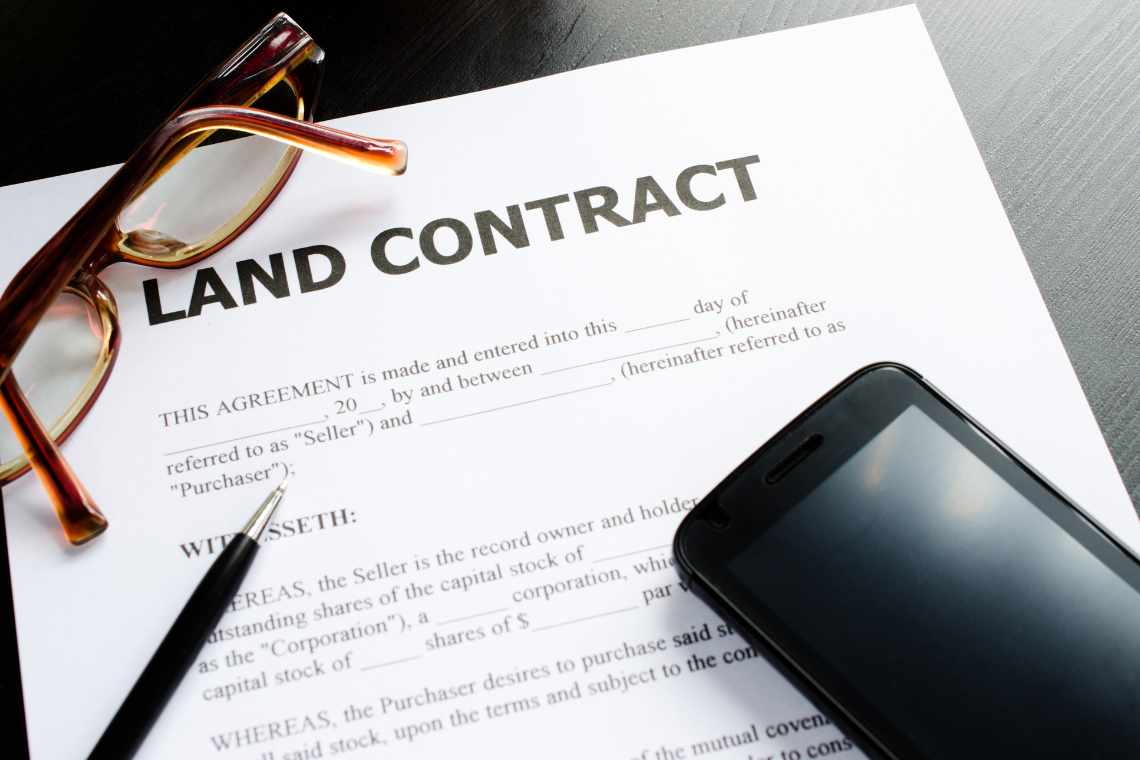Ever wonder what an alternative to traditional mortgage financing is? Perhaps this is your ticket to mortgage financing or the seller’s ticket to closing, for that matter. A land contract is often that perfect alternative for both the buyer and the seller of real estate transactions. A creative financing deal allows for flexibility and easier accessibility in purchasing property, particularly for those who may not qualify for a traditional loan. So, in this blog post, we break down what a land contract is, how it works, and why it could work out well for you.
In reality, a land contract is known as a contract for deed or an installment sale agreement. In this kind of transaction, the seller finances the sale of the property instead of any traditional lender who is in for the mortgage. However, in this kind of arrangement, an agreement exists wherein the buyer is going to pay for the purchase price in installments over time while the seller retains the legal title on his property, wherein he would not transfer it until the latter pays the full purchase amount.
This method goes easy on purchasing and is very effective for sellers as well, and is one of the most popular creative financing options in real estate.
How Does a Land Contract Work?
In a normal land contract, the buyer pays a down payment and commits himself to paying installment sums by fixed month or more regularly over some period. Usually, the installments combine both the principal sum together with the interest. At the end, the buyer gets immediate possession and use of the property, although the seller retains the legal title. It is at the end of the term of payments when, after total agreed price has been paid, the title is transferred to the buyer.
Key Features of a Land Contract
Purchase Price: The total the seller and buyer agree to.
Down Payment: An up-front sum paid by the buyer, usually less than those employed in regular mortgages.
Installments: A monthly periodic payment that pays both interest and principal.
Interest Rate: The rate at which the interest is calculated over the life of the contract.
Term Length: The period of time the contract exists, up to when the land will be paid for in full.
What are the Benefits of a Land Contract?
Land contracts are accessible even to buyers with poor credit.
Perhaps, one of the greatest benefits of a land contract is that homeownership becomes accessible to buyers who might otherwise not qualify for a traditional mortgage because their credit scores are low or there is not enough history in terms of having brought home an income. The seller determines the buyer’s creditworthiness, and due to their flexibility, it’s highly likely they will be far easier to satisfy than banks or other lenders.
- Flexible Terms
The terms can, however be negotiable between the buyer and seller. This therefore gives a higher flexibility making it a more agreed-upon deal between the two parties to fit in respective needs. For instance, one could agree on an interest rate, down payment, and length of time of the contract such that both parties find terms they are comfortable with. - Faster Closing Process
Since the buyer does not have to have the approval of a mortgage, closings can be done much more quickly with a land contract. Buyers and sellers avoid long waits all too often associated with banks and lenders, which makes for a smoother transaction. - Benefit to Sellers
For sellers, the land contract can mean an access to a greater pool of potential buyers: those who would not qualify for traditional funding. Furthermore, the seller receives interest over time from the payments made by the buyer, which may, in the final analysis, make the overall payment more expensive than a sale without a contract. - Instant Possession for Buyers
This means that one of the major benefits for the buyer in a land contract is that they immediately possess the property. The buyer can make payments, but they can also live in and use the property as though they owned it outright.
What Are the Risks of a Land Contract?
Again, there are also quite a few risks associated with using a land contract and these apply to both buyers and sellers.
Buyer Risks: If the buyer fails to pay, he loses the property and all payments made till that date. Because the owner retains legal title, repossession should be relatively fast if the buyer defaults.
Seller Risks: As long as the contract is outstanding, the seller retains legal title to the property. That means they will have to worry about anything that arises in terms of ownership during this time period. However, if the buyer defaults, the seller must go through foreclosure or procedures in court to take the land back.
Is a Land Contract Right for You?
The land contract can be beneficial to a buyer who doesn’t have full access to the financing or to the seller who wants a creative way to close more deals. Flexibility and opportunities come in this arrangement; however, risks come with this. You need to come up with cautiously negotiated terms under advice from a real estate attorney to ensure everything will be clear and legally sound.
Conclusion
This is the most unique and innovative financing possibility in real estate for a buyer because the terms and closing are flexible and simplified. But all costs have benefits; hence the necessity to understand the potential risks. If you are interested in exploring how a land contract could work for you, contact Smart Creative Finance and get expert advice from our navigators on this creative financing strategy.

No responses yet